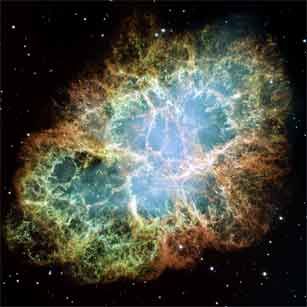 <
<
There are competitive alternatives that vie for acceptance as explanations for hierarchical and ultimate oriogin in conceptualization as opposed to belief in God. It is important to recognize the validity of such alternatives. On the other hand we can eliminate these alternatives through sound analysis. The alternatives I will consider are: inflationary theory, quantum theory, gravity, Higgs boson, eternal universe (either no singularity or uncased, or ICR—infinite causal regress), multiverse, M theory, and scientific realism. Each of these alternatives presents a possible explanation, they are scientifically credible, and while none of them compete for the same ground as religious belief they do offer plausible explanations, and they are sometimes used as alternatives to belief abductive argument the skeptic could assert that one or more of these alternatives is best explanation.
All of these alternatives are interrelated. They all form the basis of a modern scientific outlook and they have the added advantage of being probably mostly true. At least they are the product of the state of the art of scientific knowledge. It's when their proponents take them beyond the domain of science and use them to bolster proponents about belief in God, or lack thereof, that we must become critical. Gravity and Higgs boson are elements or mechanisms in the larger system of theorizing. I include them separately because some emphasize that aspect as the answer to certain aspects of the problem. For example Higgs boson is thought to be responsible for helping form matter. I document below.
Inflationary theory, quantum theory, gravity, Higgs boson, eternal universe (either no singularity or uncased, or ICR—infinite causal regress), multiverse, M theory, and scientific realism.
Inflationary theory
Inflationary theory is the idea that the universe expanded to huge size from a single point very quickly, almost instantaneously, like a balloon being blown up with a single breath.
(a period of accelerating expansion in the very early Universe) is now accepted as the standard explanation of several cosmological problems. In order for inflation to have occurred, the Universe must have been formed contaiInflationning some matter in a highly excited state. Inflationary theory does not address the question of why this matter was in such an excited state. Answering this demands a theory of the pre-inflationary initial conditions. There are two serious candidates for such a theory. The first, proposed by Andrei Linde of Stanford University, is called chaotic inflation. According to chaotic inflation, the Universe starts off in a completely random state. In some regions matter will be more energetic than in others and inflation could ensue, producing the observable Universe.1Inflation explains the large scale structure of the universe.2 But it does not explain hierarchical order. There's nothing in inflationary theory that proves inflation to be totally naturalistic in origin. Moreover, the statement above clearly demonstrates that inflation assumes the preexistence of matter, laws, and some kind of excitation. That would mean hierarchical order, organizing principles, and physical conditions already existed, so inflation can't explain them.
Physicist Paul Steinhardt, one of the originators of the theory, had doubts about it as early as his first paper on the subject (1982). He admits that the point of the theory was to eliminate fine tuning (a major God argument), but the theory only works if one fine tunes the constants that control the inflationary period. “The whole point of inflation was to get rid of fine-tuning – to explain features of the original big bang model that must be fine-tuned to match observations. The fact that we had to introduce one fine-tuning to remove another was worrisome. This problem has never been resolved.” 3Nor is inflationary theory backed by observation. Many great observations have been made to back up the original theory. But as Steinhardt points out the theory has evolved such that, “we no longer believe that inflation makes any of those predictions so that none of the magnificent observations made over the last 30 years can be viewed as supporting inflation.”.4 What's more one prediction that has not worked out is gravitational waves, predicted before '83, that should have been detected by WMAP and Planck satellites and was not..5
This argument has no implications for the cosmological argument, but it does for and fine tuning. Inflation doesn't actually explain the final cause o it's not directly a threat to the CA. But it was brought in to eliminate fine tuning, instead of doing that it actually helps it. It doesn't prove fine tuning but it weakens inflation as a means of taking it our. The real threat to the CAS is quantum theory and that's what I'll deal with next time.
Sources
1 CTC, “Origins of the Universe: Quantum Origins,” The Stephan Hawking Center for Theoretical Cosmology, University of Cambridge, online resource, URL: http://www.ctc.cam.ac.uk/outreach/origins/quantum_cosmology_one.php accessed 10/5/15.
2 Neil deGrasse Tyson and Donald Goldsmith, Origins: Fourteen Billion Years of Cosmic Evolution, NY: W. W. Norton & Co., 2004, pp. 84–5.
3 John Horgan, “Physicist slams Cosmic Theory he Helped Conceive,” Scientific American Blogs, December 1, 2014. on line, URL http://blogs.scientificamerican.com/cross-check/physicist-slams-cosmic-theory-he-helped-conceive/ accessed 10/5/15. Horgan interviews Steinhardt.
4 Ibid.
5 Ibid.

No comments:
Post a Comment